The 7 Habits of Highly Effective People by Stephen R. Covey
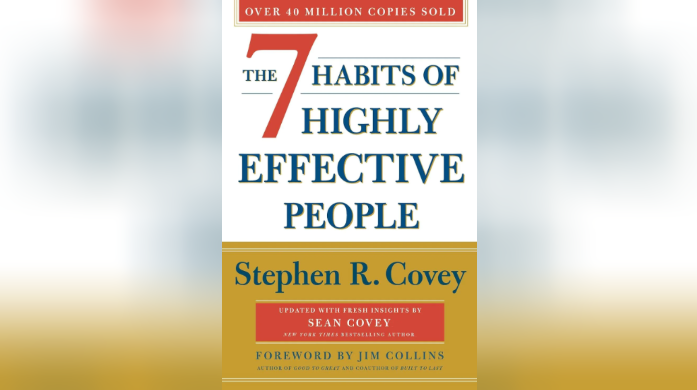
Summary


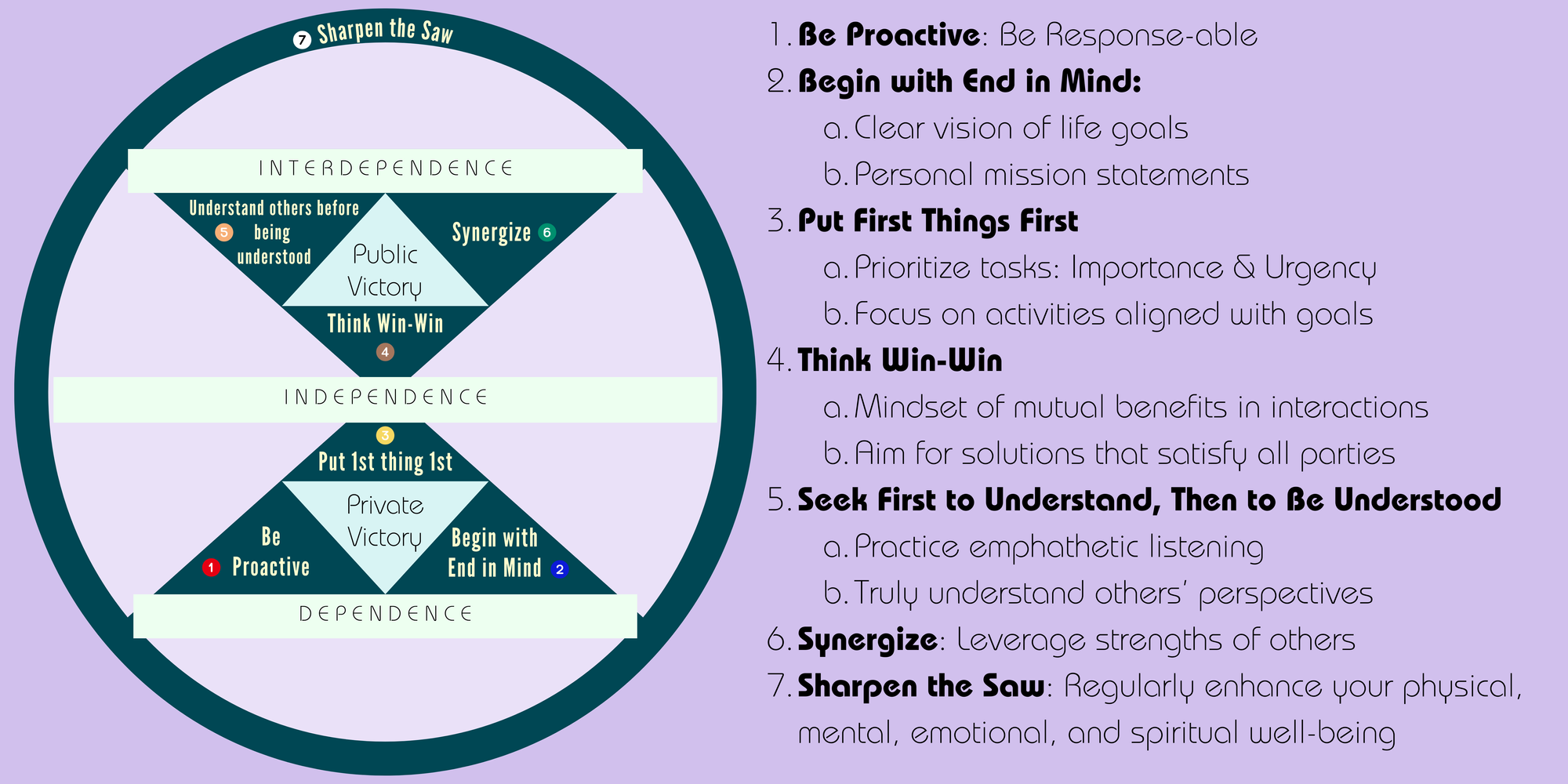
To adopt a new mindset, we need a strong paradigm shift in learning good habits and unlearning bad ones.

Habit 1
Be Proactive
- Self-awareness, evaluation, and self-examination can change our habits and affect how we see others.
- Make conscious decisions about what you want to do and plan to do, rather than passively reacting to situations or stimuli.
- Be mindful of the different consequences of your choices and compare them to see which aligns with your values.
- Think of responsibility as "response" and "ability" – you have the ability to choose your response.
- Don't let circumstances or other people dictate your actions.

- Focus on how we use our time and our circle of influence:
- Selectively ignore some of our concerns, as we may not be able to control them.
- By working on our own paradigms and motivations, we can expand our circle of influence and change conditions unexpectedly.
- Expanding our circle of influence means gaining more trust from people in your decision-making abilities.

- The proactive approach to a mistake is to acknowledge it instantly, correct and learn from it.
Our response to any mistake affects the quality of the next moment.
Application suggestions
- For a full day, listen to your language and to the language of the people around you. How often do you use and hear reactive phrases such as 'If only,' 'I can't,' or 'I have to'?
- Identify an experience you might encounter in the near future where, based on past experience, you would probably behave reactively. How could you respond proactively?
- Take several moments and create the experience vividly in your mind, picturing yourself responding in a proactive manner. Remind yourself of the gap between stimulus and response.
- Make a commitment to yourself to exercise your freedom to choose.
- Select a problem from your work or personal life that is frustrating to you. Determine whether it is a direct, indirect, or no control problem.
- Identify the first step you can take in your Circle of Influence to solve it and then take that step.
- Try a 30-day test of proactivity, in which you are being self-aware of your actions and change in your Circle of Influence.
Habit 2
Begin with the End in Mind
This chapter begins in a way that mirrors the opening of 'Someday Is Today' by Matthew Dicks. It delves into how you envision yourself and how others perceive you as you lie on your deathbed. You can read a brief summary through the link below:
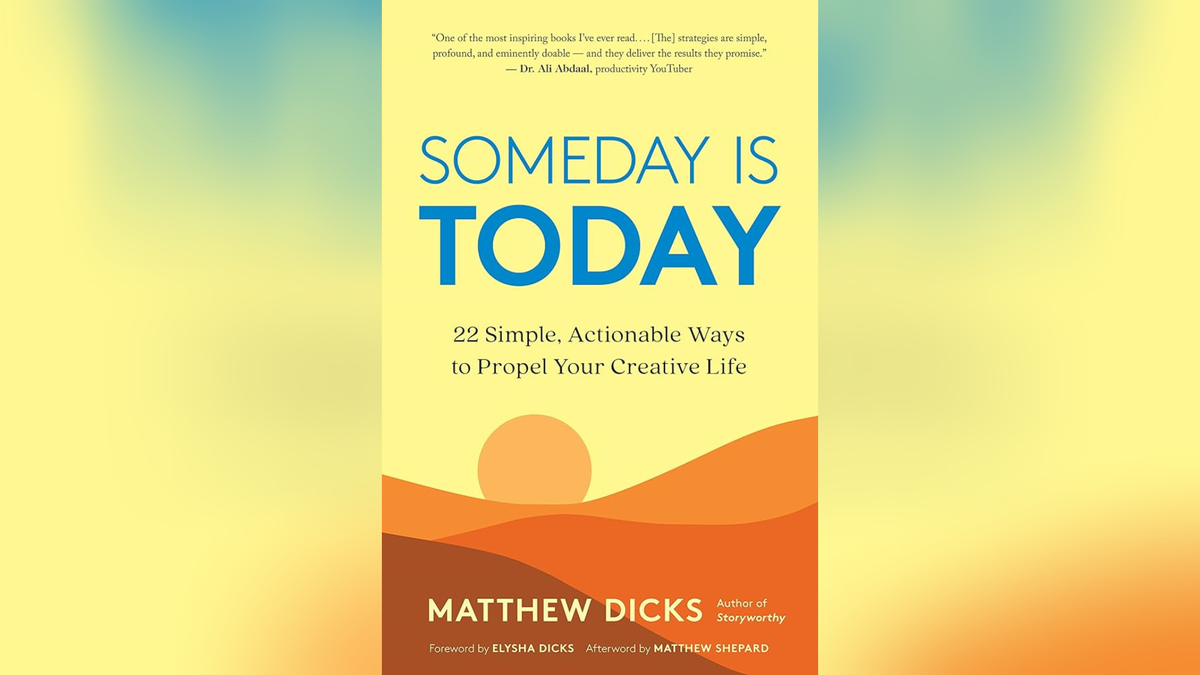
What would you like your family, friends, colleagues, and community organizations where you've been involved in service to think and remember about you?
What it means to 'begin with the end in mind?'
- Have a clear understanding of your destination, so you can always take steps in the right direction.
All things are created twice

Leadership and Management

'Management is doing things right; leadership is doing the right things.' - Peter Drucker and Warren Bennis
Rescripting: Becoming Your Own First Creator
Rescripting involves redefining and creating your own life scripts based on your values and principles rather than external influences or past experiences. This process allows you to become the "first creator" of your destiny by consciously choosing and designing your future.
To apply Covey’s thinking into our own actions, consider the following steps:
- Define Your Vision: Clearly articulate the kind of person you want to become or the kind of family you want to build. Write a personal or family mission statement.
- Align Actions with Vision: Ensure that your daily activities and decisions are consistent with your long-term vision. Prioritize actions that contribute to this vision.
- Continuous Reflection: Regularly revisit and adjust your scripts as necessary, ensuring they remain aligned with your evolving values and goals.
By consciously rescripting our lives, we can take control of our destinies, just as Sadat did, and create a positive and lasting impact on our families and communities.
At the Center and Alternative Centers
These centers represent the core values or principles around which individuals base their decisions and behavior.

Covey suggests examining where your fundamental security, guidance, wisdom, and power come from, you can identify your center.
Ultimate Goal: Becoming Principle-centered
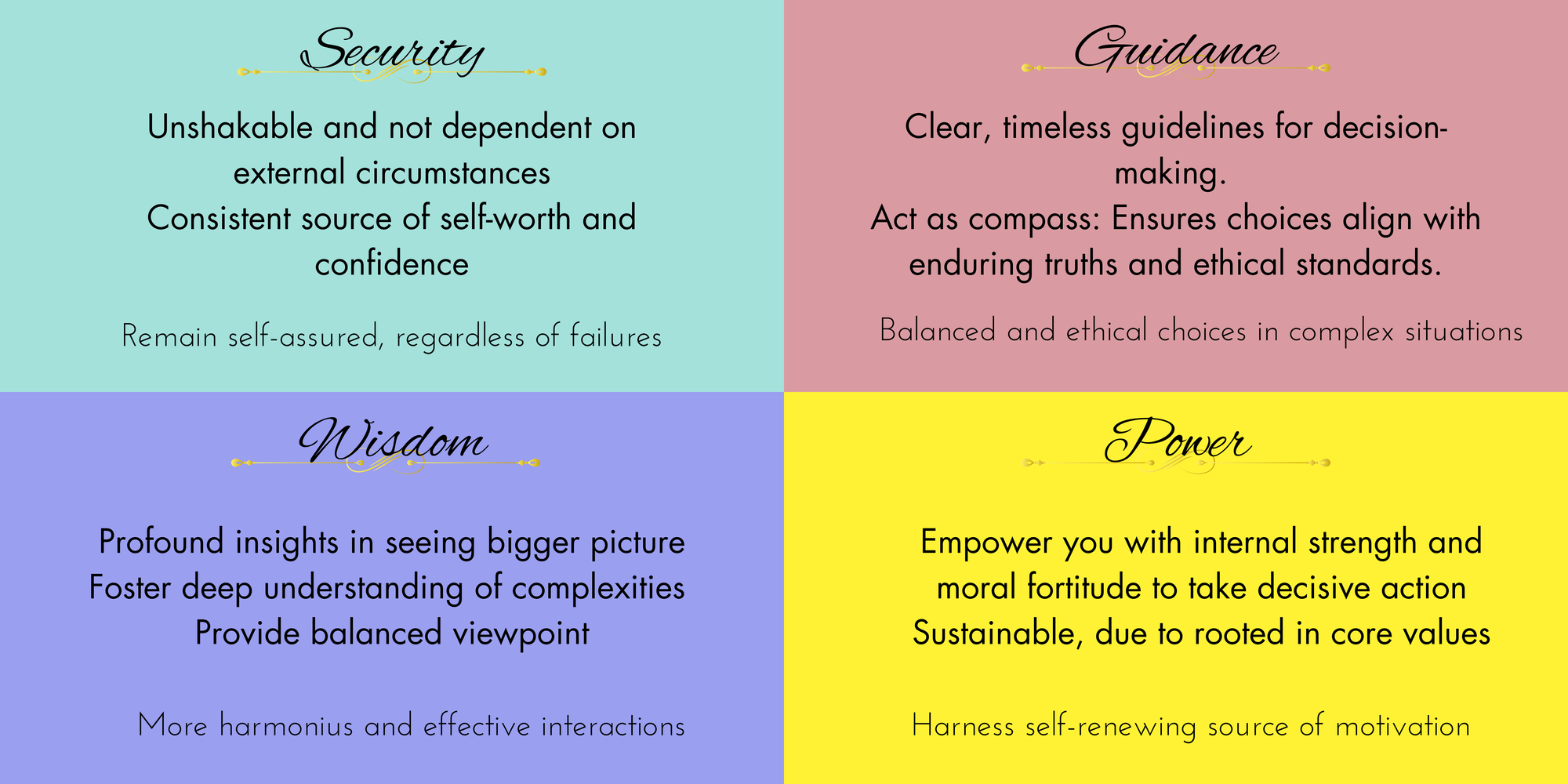
Covey emphasizes that the ultimate goal is to become principle-centered. Principles are timeless, universal truths that serve as a reliable foundation for making decisions. By centering your life on principles, you align yourself with values that do not change, providing consistent and enduring guidance.
Write and use a personal mission statement
Rather than pondering the purpose of your existence, understand that you are the architect of your life. Therefore, dedicate time to designing the optimal blueprint, your personal mission statement.
How to craft and achieve personal mission statement:
- Visualize every important milestone that you can imagine in your life; wedding anniversary, retirement, funeral, etc. Then, involve as many emotions and senses as you can.
- If you notice that you are not acting according to your 'ideal state', visualize situations that will lead to the 'wrongdoings', but now in your mind, visualize yourself following your 'ideal state'.
- Identify your roles and goals, i.e., husband, father, brother, etc. Then think about the long-term goals you want to achieve for each of these roles.
Family and Organizational mission statements
Mission statements are also vital to harmonious family and successful organizations. Instead of letting one 'leader' to draft the mission statement, let everyone be involved in it, and naturally people will commit to it.
No involvement, no commitment.
Application suggestions
- Record the impressions you had of the funeral visualization.
- Write down your roles. Are you satisfied with your current state?
- Set up time to completely separate yourself from daily activities and to begin work on your personal mission statement.
- Start collecting notes, quotes, and ideas that may be used in the writing of your personal mission statement.
- Visualize a project of yours in near future. Write down the results you desire and the necessary steps in achieving them.
- Share the principles of Habit 2 with your family or work group, and suggest to develop a mission statement together.
Habit 3
Put First Things First
Keyword: Practice effective self-management
Manage from the left brain; lead from the right brain.
It's the ability to 'walk our talk'.
Leadership decides what the 'talk' or 'first things' are, then effective management is the discipline that carries it out, in which the discipline comes from your independent will.
Maintain the P/PC Balance [Production/Production Capability]
- Preserving and enhancing relationships and on accomplishing results.

- Effective people focus on Quadrant 2
- If you wonder what Quadrant 2 consists of, answer the following questions:
- What one thing could do that if you did on a regular basis, would make a tremendous positive difference in your personal life?
- What one thing in your business or professional life would bring similar results?
- If you wonder what Quadrant 2 consists of, answer the following questions:
- If you cultivate the proactivity to go after Quadrant 2, your crises and problems (Quadrant 1) would shrink, as you would be thinking ahead and working on the roots to prevent crises from developing.
- Having a bigger 'yes' burning in your heart, will help you to say 'no' to Quadrant 3 and 4 activities.
- The Quadrant 2 organizer:

- 4 key activities of Quadrant 2 organizer

- Live your 'program'; Commit to your principles and deepest values.
- Your self-awareness and conscience will guide and empower you to maintain integrity to do things in Quadrant 2, even when other events afloat.
- However, remember to think effectiveness with people and efficiency with things. Be adaptive and don't feel guilty when you don't meet your schedule.
- Delegation: Increasing P and PC
If we delegate to time, we think efficiency. If we delegate to other people, we think effectiveness.
- Learn how to effectively delegating to other skilled and trained people.
- Adapt stewardship delegation:

- Enable one to be their own boss and, as the delegator, provide assistance when necessary.
- Trust empowers people to realize their full potential. However, it demands time and patience. Therefore, persevere in nurturing and developing individuals until their competencies align with the level of bestowed trust.
Application suggestions
- Identify a Quadrant 2 activity you know had been neglected - one that if done well, would have significant positive impact in your life. Write it down and commit to implement it.
- Draw a time management matrix and try to estimate the % of time spent in each quadrant. Then log your time for 3 days in 15 minutes intervals. How accurate was the estimate? Are you satisfied? What do you need to change?
- Make a list of responsibilities you could delegate and people you could delegate to.
- Organize your next week using template below.

- Commit yourself to start organizing on a weekly basis and set up a regular time to do it.
Paradigms of Interdependence
The Emotional Bank Account
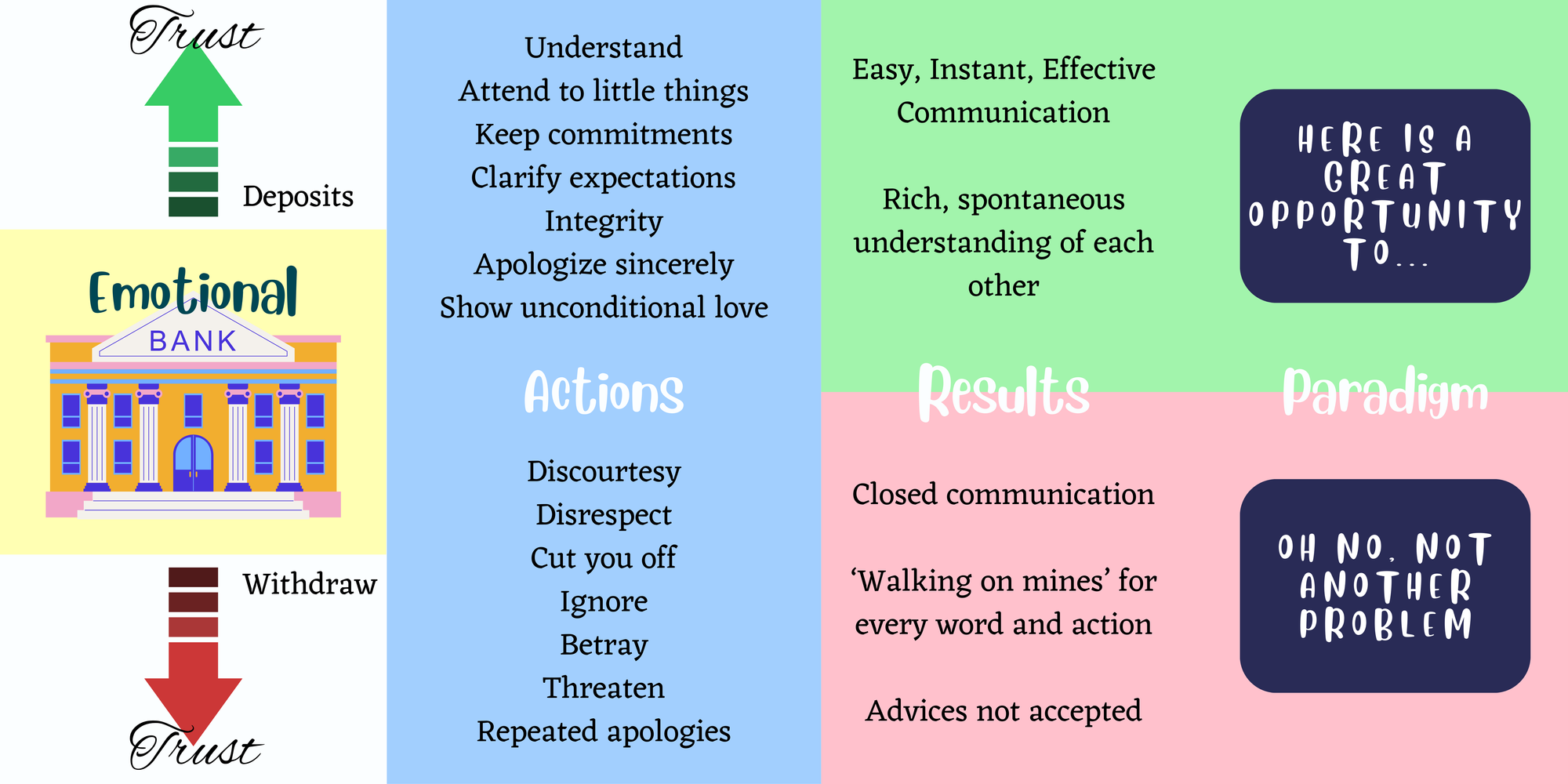
Habit 4
Think Win/Win
6 Paradigms of Human Interaction

Adopting a Win/Win or No Deal approach is the sole way to foster trust, synergy, and make a long-lasting positive impact in any relationship. Understandably, there are instances when opting out isn't feasible, thus calling for a compromise - a lesser form of Win/Win.
However, in numerous situations, it's feasible to enter negotiations embracing a straightforward Win/Win or No Deal stance. The liberating spirit encapsulated by this attitude is truly remarkable.
5 Dimensions of Win/Win

Quoted from the book: 'Win/Win is not a personality technique. It's a total paradigm of human interaction. It comes from a character of integrity, maturity and the Abundance Mentality. It grows out of high-trust relationships. It is embodied in agreements that effectively clarify and manage expectations as well as accomplishment. It thrives in supportive systems, and it is achieved through the process in Habits 5 and 6.'
Note that there are a lot of Covey's real-life applications of the Win/Win mentality in management training, performance agreements, and building a support system to cultivate truly effective people and environment stated in the book. Hence, for a greater understanding, I highly recommend reading this section if you are interested in how to apply the concepts into actions.
Application suggestions:
- Think about an upcoming interaction where you will be attempting to negotiate a solution. Commit to maintain a balance between courage and consideration.
- Make a list of obstacles that keep you from applying the Win/Win paradigm more frequently. Determine what could be done within your Circle of Influence to eliminate some of those obstacles.
- Select a specific relationship where you would like to develop a W/W agreement. ➡️ Try to put yourself in the other person's place, and write down explicitly how you think that person sees the solution. ➡️ List, from your own perspective, a Win result for you. ➡️ Negotiate with the other person until you reach a point of mutually beneficial and agreeable solution.
- Identify 3 key relationships in your life. Estimate what you feel the balance is in each of the Emotional Bank Accounts. Write down some specific ways you could make deposits in each account.
- Deeply consider your own scripting. Is it Win/Lose? How does this affect your interactions with other people? Can you identify the main source of the script? Determine whether or not those scripts serve well in your current reality.
- Try to identify a model of W/W thinking who, even in hard situations, really seeks mutual benefits. Observe in detail and learn from this person.
Habit 5
Seek first to understand, then to be understood
Having a deep conversation with people is essential for depositing into their Emotional Bank Account by actually understanding their perspectives. More often, people find themselves 'unable to understand' the other, because of 'not taking the advice' from them. That's a misguided mentality, as proposed by Covey, that we should be listening to them in order to 'understand them', and not the other way round.

Empathic listening is the highest form of listening one could learn. It means listening with the intent to understand, instead of mimicking what another person says. It is also not a form of agreement or judgment, and it certainly does not involve autobiographical responses.

Empathic listening is like psychological air - an unsatisfied need of mankind to be understood, affirmed, and appreciated. By giving psychological air to someone, you are making a huge deposit in the Emotional Bank Account, and successfully influencing their interactions with you.
However, empathic listening is also risky as you open yourself up to be influenced. That's why Habits 1, 2, and 3 are so foundational as they gave you the changeless inner core of principle center, that support you to handle more outward vulnerability.

Covey illustrated a conversation between a child with problems at school and a parent, as well as the child's inner thoughts during the conversations. This story left the biggest impression in me, as it made me reflect my responses when someone is opening up their problems to me. It's not just about their words, as emotions and genuine thoughts are rarely conveyed through merely words.

What happens when your advice is sought? The best approach is to effectively ask questions and give counsel when the response is logical. However, once reactions turn emotional, it's crucial to revert to empathetic listening.
Highlighted above are empathic listening skills. However, these skills won't be impactful without a genuine intent to understand. While empathic listening might seem time-consuming to some, it is crucial for fostering trust in relationships and facilitating collaborative problem-solving over time.
Maturity is the balance between courage and consideration. Seeking to understand requires consideration; seeking to be understood takes courage.
How to make effective presentations to be understood?

The progression of your character and relationships, coupled with the reasoning in your presentation, signifies a significant paradigm shift. Many individuals utilize 'logic' to persuade others, often neglecting the importance of 'ethos' and 'pathos'.
This practice falls within your Circle of Influence; it's an initiative you can take to gain accurate insights from others and cultivate Emotional Bank Accounts for productive collaboration.
Even if people don't express themselves verbally, you can still empathize with their actions. If you're exceptionally proactive, you will be able to craft opportunities for prevention before any crisis springs up and necessitates a dialogue with you.
When we really, deeply understand each other, we open the door to creative solutions and third alternatives. Our differences are no longer stumbling blocks to communication and progress. Instead, they become the stepping stones to synergy.
Application suggestions
- Choose a relationship with a negative Emotional Bank Account. Understand and jot down the other's viewpoint. In your next conversation, listen to verify your assumptions against their perspective. Were your assumptions correct? Did you truly grasp their viewpoint?
- Share the concept of empathy with someone close to you. Tell him or her you want to work on really listening to others and ask for feedback in a week. How did you do? How did it make that person feel?
- The next time you have an opportunity to watch people communicate, cover your ears for a few minutes and just watch. What emotions are being communicated that may not come across in words alone?
- Next time you catch yourself inappropriately using one of the autobiographical responses - probing, evaluating, advising, or interpreting - try to turn the situation into a deposit by acknowledgement and apology. ('I'm sorry, I just realized I'm not really trying to understand. Could we start again?')
- Base your next presentation on empathy. Describe the other POV as well as or better than its proponents; then seek to have your point understood from their frame of reference. [Character -> Relationships -> Logic]
Habit 6
Synergize
Synergy = The whole is greater than the sum of its parts.

Synergy is the essence of principle-centered leadership. It catalyzes, unifies and unleashes the greatest powers within people.
How do we achieve synergistic communication?
Open your mind, heart, and expressions to new possibilities and options. Feel excited about the adventure, and believe that it will be significantly better than it was before.
Combining Habits 4, 5, and 6, people can become open to each other's influence and generate new insights and options together.

Having synergistic communication produces solutions out of high trust and high cooperation, hence they will be better than any originally proposed, and all parties know it.
Fish for the 3rd Alternative
When two individuals with close relationships of different backgrounds, experiences and thoughts experience conflicts with decision making, oftentimes they end up in compromises that satisfy none completely.
The key to solving this problem is to start with seeking to first understand each other's viewpoints, and feel the importance of issues for each other. Then, the two individuals will be together on one side, looking at the problem and finding a third alternative that weighs both individuals' priorities and feelings equally.
Force Field Analysis
'Any current level of performance or being as a state of equilibrium between the driving forces that encourage upward movement and the restraining forces that discourage it.'
When you use the motive of 'Think Win/Win', the skill of 'Seek First to Understand, Then to be Understood', and synergistic interaction, you are directly working on the restraining forces. And with the same driving forces exerted, people develop excitement and create new goals and opportunities.
Internal synergy
A great deal of synergy is within one's Circle of Influence. You can respect both sides of your own nature - the analytical side and the creative side. You value and utilize the difference to catalyze creativity. Within yourself, you can look for a synergistic third alternative that will be better for everyone concerned.
Application suggestions
- Think about a person who typically sees things differently than you do. Consider ways in which those differences might be used as stepping-stones to third alternative solution. Listen to his or her view on a current problem, and value the different views.
- Make a list of people who irritate you. Do they represent different views that could lead to 'synergy if you had greater intrinsic security and valued the difference?'
- Identify a situation in which you desire greater teamwork and synergy. What conditions would need to exist to support synergy? What can you do to create those conditions?
- The next time you have a disagreement with someone, attempt to understand the concerns underlying that person's position. Address those concerns in a creative and mutually beneficial way.
Habit 7
The constant renewal of skills is personal PC (Production Capability). It's preserving and enhancing the greatest asset you have - you.
The 4 Dimensions of Renewal

'Sharpen the saw' means exercising the above 4 dimensions regularly and consistently in wise and balanced ways.
We must be proactive; as sharpen the saw is a Quadrant 2 activity, it is not urgent but important, hence only through self-awareness and integrity we can act on it. Reminder: This is the single most powerful investment we can make in ourselves.
- Physical dimension - Caring effectively for our physical body
- Exercise:
- Endurance: Aerobic exercise - rapid walking, running, swimming
- Flexibility: Stretching
- Strength: Muscle resistance exercise - push-ups, pull-ups, sit-ups, other simple calisthenics
- Exercise:
- Mental dimension - Continuing education and expanding of the mind
- Read broadly and expose yourself to great minds.
- Write a journal of your thoughts, experiences, insights and learnings. It affects our ability to think clearly, reason accurately and to be understood effectively.
- Spiritual dimension - Provide leadership to your life
- Ways: Meditation on scriptures, Immerse in great literature and music, Communicate with nature.
- Another way: Go to a beach (or your favourite place) -> Listen carefully -> Try reaching back -> Examine your motives -> Write your worries
'The greatest battles of life are fought out daily in the silent chambers of the soul' - religious leader David O. McKay
- Social/Emotional dimension - Centered on principles of interpersonal leadership, empathic communication and creative cooperation
- Achieved by practicing empathic understanding with people of different POV, and producing W/W solutions.
- Part of intrinsic security comes from within; part of it comes as a result of effective interdependent living, by knowing that win/win solutions do exist; and part of it comes from service - the act of helping others in a meaningful way.
Scripting others
Humans tend to learn from each other's behaviour, opinions and perceptions. We can choose to instil people with the 7 habits stated, and, given with the Abundance Mentality, we realize that giving a positive reflection to others in no way diminishes us. It only increases us as the opportunities for effective interaction with other proactive people increase too.
Treat a man as he is and he will remain as he is. Treat a man as he can and should be and he will become as he can and should be.
Balance in renewal
Only a balanced renewal in all four dimensions: physical, mental, emotional and spiritual, is optimally effective.
Even in organisations:
- Physical dimension = economic terms
- Mental dimension = recognition, development and use of talent
- Emotional dimension= human relations
- Spiritual dimension = finding meaning through purpose or contribution and through organizational integrity.
If only one dimension is overly revised, e.g. a company that only focus on generating money, it will generate great deal of negative synergy in the culture through interdepartmental rivalries, defensive and protective communication, etc.
Any dimension that is neglected will create negative force field resistance that pushes against effectiveness and growth.
Synergy in renewal & Upward spiral
As all the dimensions and habits are interrelated, by improving in one dimension or habit, you increase your ability in other dimensions as well. As we grow and develop on this upward spiral, we must show diligence in the process of renewal by educating and obeying our conscience.
It requires us to learn, commit and do on increasingly higher planes, again and again.
Application suggestions
- Make a list of physical activities that keep you fit, and one that fit your life-style and that you could enjoy over time.
- Select one of the activities and list it as a goal in your personal role area for the coming week. At the end of the week evaluate your performance. If you didn't make you goal, was it because you subordinated it to a genuinely higher value? Or did you fail to act with integrity to your values?
- Make a similar list of renewing activities in your spiritual and mental dimensions.
- In your emotional area, list relationships you would like to improve in which Public Victory would bring greater effectiveness.
- Select one item in each area to list as a goal for the week. Implement and evaluate.
- Commit to write down specific 'sharpen the saw' activities in all four dimensions every week, to do them, and to evaluate your performance and results.
Afterword & Appendix
- The story between Covey and his wife, deciding to have deep conversations while cycling along sceneries, was such sweet moments I believe all can enjoy with some initiative, commitment, and ground rules - 'No probing' and stop when it hurts too much.
- The differences between value & principles
- Values = Internal, subjective, and represent that which we feel strongest about in guiding behaviour.
- Principles = External natural laws, and ultimately control the consequences of our actions.
- We should value principles, so that we can be effective - get the results we want now in a way that enables us to get even greater results in the future.
- If your center is: Principle

- A Quadrant 2 Day at the Office (for managers level)


Although it's ideal for all of the above approaches to be implemented, being highly effective is an ideal to work toward. Time would be needed in Quadrant 1, but it can be reduced by implementing the above approaches to prevent a continuously stressful crisis atmosphere.

Stay tuned for more books review
Look forward to reading more books this year


